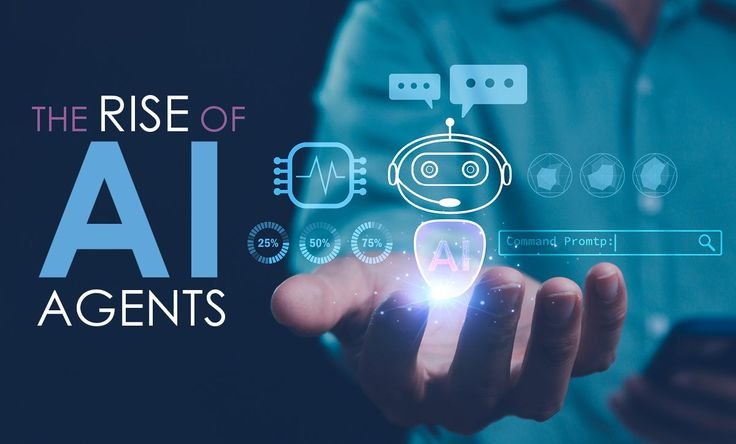Login to leave a comment.

Consider giving your to-do list to an artificial intelligence (AI) system that can reason, think, and act without your intervention. Greetings from the era of AI agents, which encompasses digital laborers and software.
What Are AI Agents?
An AI agent is a self-directed system that can sense its surroundings, use reasoning to complete tasks, and act meaningfully to achieve a predetermined objective. AI agents are capable of planning, making decisions, and correcting themselves, in contrast with traditional scripts or bots that adhere to strict, predetermined instructions.
Simply stated, old automation equates to button-clicking, ignorant bots.
Smart agents that understand why they are clicking are the result of new automation.
Large language models (LLMs) like GPT-4 serve as the foundation for AI agents, which are effectively granted arms and legs in the digital world by integrating tools like web browsers, file systems, databases, and APIs.
The Automation Evolution: From Scripts to Smart Workers
Stage 1: Macros & RPA
Consider robotic process automation or Excel macros, which speed up repetitive processes but are still incredibly inadequate.
Stage 2: Rule-Based Bots
Better, but still incapable of thinking, are chatbots, workflow builders, and IFTTT-style reasoning.
Stage 3: AI Agents (Current stage)
Systems with goals that are able to plan, adjust, and use tools to carry out tasks across domains, even correcting their own mistakes along the way.
Real-World Use Cases of AI Agents
1. Autonomous Coding
Without human assistance, tools such as Devin AI are able to write, test, and debug code, reply to GitHub issues, and commit final changes.
2. Executive Assistance
Agents using frameworks like Phidata or LangChain are more adept than the typical intern at scheduling meetings, managing emails, summarizing documents, and performing administrative duties.
3. Research and Analysis
With little input, AI bots can search the web, compile trends, compare materials, and produce insightful insights.
What’s Powering These Agents?
A collection of interconnected tools and frameworks is the key to today's AI agents:
- LangChain: Coordinates agent logic, memory, and tool usage.
- Auto-GPT: Uses file systems and the internet to carry out multi-step tasks.
- The goal of OpenDevin is to create self-governing code bots.
- Phidata is a framework for creating production-ready, full-stack AI agents.
- ReAct and CoT (Chain of Thought) are reasoning strategies that allow agents to think things through before acting.
These are far more than just fancy chatbots. They combat problems digitally.
The Future: Agent Swarms and AI Teams
What follows when one agent is not enough?
The era of multi-agent collaboration is approaching us, wherein agents assign tasks to sub-agents, interact with one another, and split duties similarly to a digital team. A campaign may be planned by one agent, contented by another, scheduled by a third, and results tracked by a fourth.
0 comments
No comments yet. Be the first to comment!